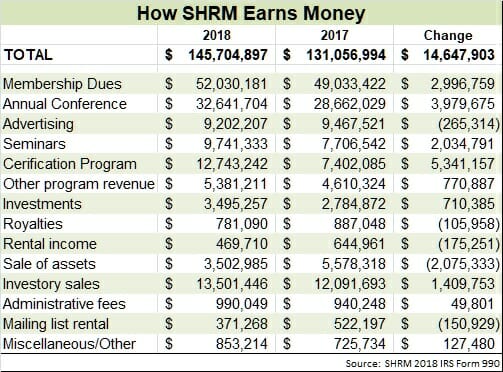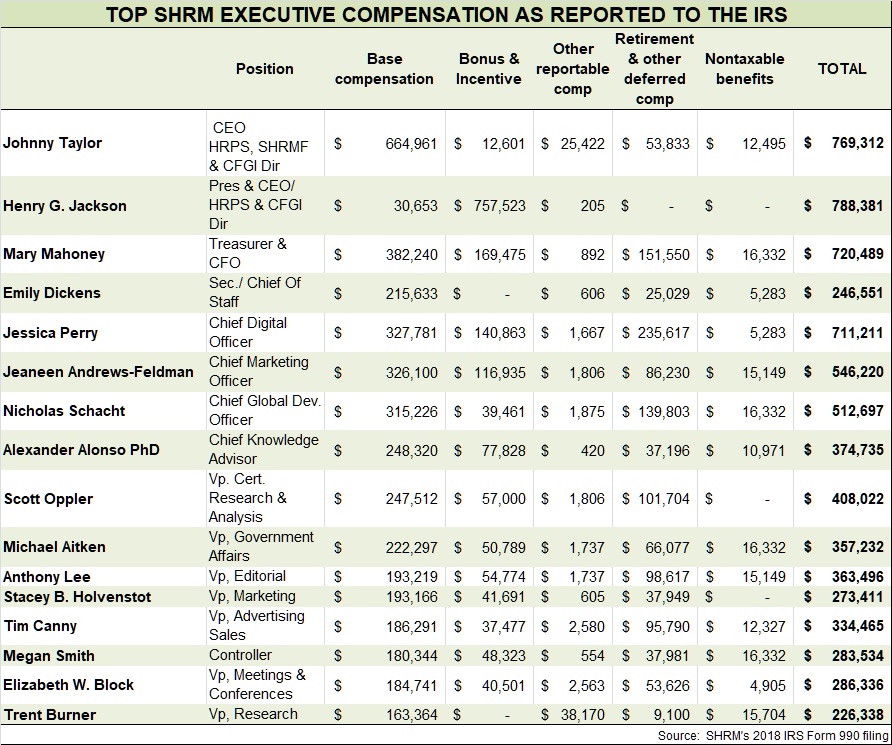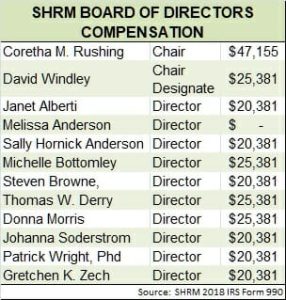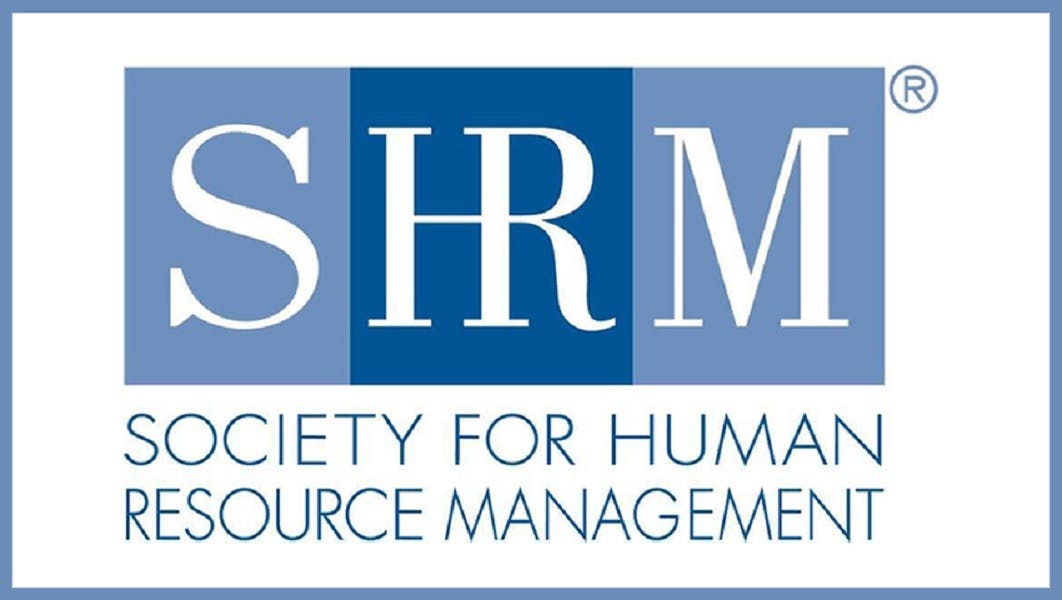The Society for Human Resource Management turned a $14 million profit in 2018, the result of growing revenue and tightening expenses. It paid its CEO Johnny Taylor a base salary of $665,000, substantially less than the $2.7 million his predecessor, Hank Jackson was paid in 2017, the year he retired. Overall salary expenses went down, while headcount rose by more than 100.
The details are contained in SHRM’s 2018 tax return filed with the Internal Revenue Service earlier this month.
According to the return, SHRM grew its annual revenue to $145.7 million, a $14.6 million increase over 2017. Expenses increased by a modest $3.6 million to $131.6 million.
Certification revenue doubles
Three programs contributed the bulk of the increase in revenue over expenses, with SHRM’s certification program earning $5.3 million more in 2018 than it did the year before. The certification program began in 2015, after SHRM ended its longtime partnership with the HR Certification Institute. In its first year, the revenue from certifications was a minor contributor, not large enough to be separately listed on the tax return for the year. But by the 2016 tax year, SHRM reported certifications brought in $6.4 million. By 2018, income from certifications practically doubled to $12.7 million.
On the expense side, salaries represented the single largest share. SHRM’s return shows it paid $53.9 million in comp and benefits. Despite a W2 headcount increase from 397 in 2017 to 505 reported on its 2018 return, overall comp and benefits declined $2.3 million year over year. How salary expenses went down when headcount went up is unclear.
Asked about that, a SHRM spokesperson said only that the “number of employees listed on the Form 990 is the number of employees who received a W2, not the number of positions at SHRM.” We’ve asked for further clarification on this.
Taylor paid less
One area where SHRM is saving on comp is in the CEO’s pay. Taylor is being paid substantially less than what the now retired Jackson was paid during his last years heading the organization.
On top of a base of $664,961, Taylor received a bonus of $12,601, deferred retirement pay of $53,833 and other comp and benefits to total $769,312. By comparison, the American Society of Association Executives puts the median association CEO base pay at $520,407, bonuses at $62,320 and deferred comp at $29,000.
Though Taylor’s 2018 total is within the ASAE range, it pales next to the multi-million paycheck Jackson received in each of his last four years in office. His $9.4 million 2017 comp, which included a $5.7 million retirement payout, caused a stir last year when CEO Update reported it was the largest of any received during the year by the top executives of the trade and professional associations the online magazine tracks.
Speaking to TLNT, CEO Update Managing Director Mark Graham said Jackson’s average pay since becoming CEO was $2.3 million, including bonus. “The median take-home pay for CEOs leading a professional society with more than $100M in revenue is about $1M,”Graham observed.
Why the difference in comp between Jackson and Taylor? A SHRM spokesperson told us by email that, “Compensation depends upon several factors, such as the split between base and bonus, other benefits, skills sets, tenure, etc.”
Jackson bonus
Jackson, who retired in late 2017, was paid $788,381 last year. A SHRM spokesperson said it covered his last paycheck for the year and his 2017 bonus of $757,523. Jackson received $1 million bonus in 2017 for his 2016 work.
Two other SHRM employees also received pay packages worth more than $700,000: CFO Mary Mahoney received $720,489 and Chief Digital Officer Jessica Perry earned $711,211.
Collectively the organization’s 30 or so officers, directors and key employees were paid $9,160,603. Cumulatively their pay represents 22.6% of the total salaries and wages SHRM paid its 505 workers in 2018. In all, 134 employees earned more than $100,000 during the year.
Board member contributes her pay
SHRM’s 12 elected board members were paid $20,831. The 2018 board chair, Coretha M. Rushing, was paid $47,155. Her successor, David Windley, was paid $25,381, as were three other board members who chaired SHRM committees during the year. Windley is now in the first of a two-year term as chair of SHRM’s board. CEO Taylor also serves on the board.
Only one board member, Melissa Anderson, took no pay. A SHRM spokesperson explained that Anderson, who is executive vice president, administration, and chief human resources officer of Duke Energy, “declined her honorarium and requested that it be redirected to the work of the SHRM Foundation.”
